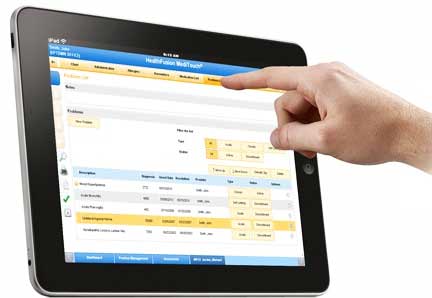The Dubai Health Authority (DHA) has launched a unique medical and health record system integrating 2700 public and private health-care facilities in Dubai, offering a single electronic file for each resident, officials announced. This new database will be ready by first quarter of 2018.
Launching the new system yesterday, the Crown Prince of Dubai and Chairman of Dubai Executive Council, as part of Dubai Smarter, said that Dubai Healthier Programme is seeking to fulfil the goals of the National Health Strategy announced by DHA for the period 2016 – 2021. Eventually, it would be linked to the National Unified Medical Record to be launched by Ministry of Health and Prevention.
The Electronic Medical Record (EMR) or ‘Salama System’ will serve as an electronic record for patients across all public health hospitals, primary health centres and other health care facilities, while the Electronic Health Record (EHR) or NABIDH system will extend this medical record across all private hospitals, integrating medical records of the patients.

NABIDH, which implies pulse in Arabic, it will create big health data, which is used as an analytical tool in crisis management, management of disease outbreaks and also will play a role in implementing preventive health care.
This will be one of the biggest integrated electronic patient information systems in the Middle East. This big data will include details such as lifestyle diseases, patient profiles, unique allergies, drug sensitivities, conditions, treatment, doctors who treated the patient, all will be available in click of a button. The patient can easily consult a doctor in the emirate, and his file will follow him electronically, making seamless connections from private to public health care.
All this information will be stored in a Central Command System, which will co-ordinate with other essential services like Civil Defence, immigration, ambulance services, hospitals, municipality, health centres and pharmacies.
Later, this big data will be linked to other emirates, offering UAE a clear and concise picture of direction and magnitude of health-care services.
Explaining the manner in which NABAIDH works, Dr. Mohammad Abdul Qader Al Redha, Director, Health data and information analysis at DHA said that instead of the patient chasing the big data, the big data will follow the patient around. Hence, for instance, if there is an outbreak of food poisoning, the health care and municipal authorities will be alerted to follow the pattern and know from where the cases are being reported. Similarly, in case of a disease outbreak, the movement of number of patients from a single region can be monitored by the airport.
The ‘Salama’ or EMR System will provide an electronic medical report of each Dubai resident when they visit a government clinic or hospital.
The (EHR) system will extend the medical record to private hospitals and integrate it with public health-care system. Henceforth, if a patient, treated at a government hospital needs to consult a private hospital, his electronic record will be made available to that doctor, thereby offering a long health history of the patient. So the patient need not carry multiple health files.
Meanwhile, with such a policy, the government can frame a public health policy and facilitate patient care.
